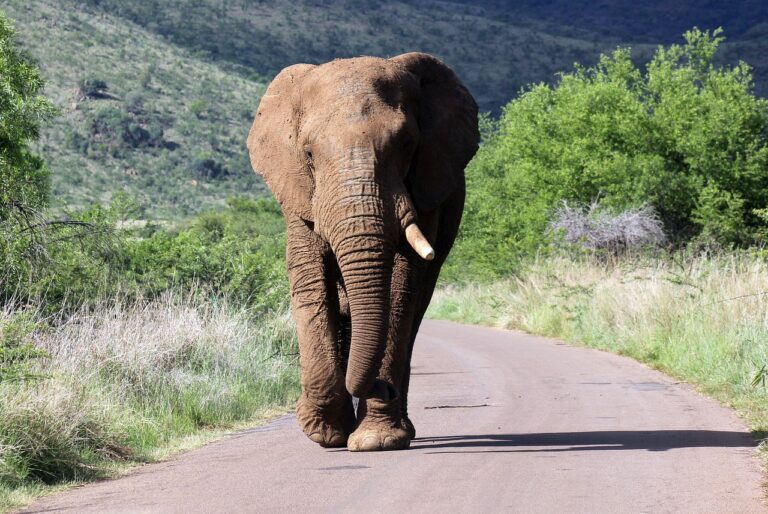Unlocking Your Leadership Potential: Choosing the Path to Greatness
The Crowded Road to Average: Choosing the Path to Greatness
In today’s society, it is easy to fall into the trap of settling for average. We are surrounded by a culture that often emphasizes conformity and mediocrity, leading many to believe that being “good enough” is all that is required. The result is a crowded road, filled with individuals who are content to go through the motions, follow the crowd, and avoid taking risks. This path is comfortable and easy, but it ultimately leads to stagnation and a lack of progress.
However, for those who seek to be great, the path is clear. It is a road less traveled, free from the traffic jam of average. The only obstacle standing in the way of greatness is the individual themselves. Choosing the path of greatness means taking ownership of your life and your leadership journey.
As a leader, your impact on your team, your organization, and your community can be significant. Choosing the path of greatness means recognizing the responsibility that comes with leadership and using it to unlock your potential. It requires a commitment to growth, a willingness to embrace discomfort and uncertainty, and a dedication to consistently showing up as your best self.
The power of choice is at the heart of leadership. Every day, you make choices about how you will approach your work, interact with others, and respond to challenges. These choices shape the trajectory of your leadership journey and impact the people around you. By choosing the path of greatness, you can make a profound difference in your own life and the lives of those you lead.
The Perils of Settling for Average
The road to average is often crowded because it represents the path of least resistance. People may be afraid to step outside of their comfort zones, worried about what others will think, or simply lack the motivation to push themselves further. However, settling for average has its perils, particularly for those in leadership positions.
One danger of settling for average is the herd mentality that can arise. When everyone around you is settling for mediocrity, it can be challenging to stand out and make a meaningful impact. In this environment, it can be easy to fall into the trap of complacency and stop pushing yourself to improve.
Comfort zones can also be a significant barrier to greatness. When we stay within our comfort zones, we limit our potential for growth and development. We may miss out on opportunities to learn new skills, take on new challenges, and expand our horizons.
Additionally, the fear of judgment from others can be a significant obstacle to greatness. It is human nature to want to be liked and accepted by others, and we may worry that taking risks or pushing ourselves outside of our comfort zones will make us appear foolish or incompetent. However, the fear of judgment can lead to inaction and a lack of progress.
Finally, settling for average can have a significant impact on personal and organizational growth. When leaders are content to maintain the status quo, they miss out on opportunities to innovate, improve, and achieve success. This can result in a lack of progress and a failure to reach full potential.
To break free from the perils of settling for average, leaders must be willing to take risks, step outside of their comfort zones, and push themselves to achieve greatness. This requires a mindset shift and a commitment to personal and professional growth. By embracing discomfort, taking calculated risks, and focusing on growth, leaders can unlock their full potential and make a meaningful impact on their teams and organizations.
Unleashing Your Potential
To achieve greatness, leaders must first define what greatness means to them. This requires a deep understanding of their values, passions, and purpose. By identifying these foundational elements, leaders can begin to set goals and develop a roadmap for their personal and professional growth.
One common barrier to greatness is self-limiting beliefs. These are the beliefs we hold about ourselves that hold us back and limit our potential. Examples of self-limiting beliefs might include thinking that we are not smart enough, not experienced enough, or not capable enough to achieve our goals. By recognizing and challenging these beliefs, leaders can begin to unlock their potential and achieve greatness.
Embracing discomfort is another critical component of achieving greatness. This means being willing to step outside of our comfort zones, take risks, and face uncertainty. It can be uncomfortable and challenging, but it is often where the greatest growth occurs.
A growth mindset is also essential for achieving greatness. This means adopting a mindset that embraces challenges and sees failure as an opportunity to learn and grow. By approaching challenges with a growth mindset, leaders can unlock their full potential and achieve their goals.
Leaders who strive for greatness must be committed to continuous learning and development. This means seeking out new experiences, learning from others, and pursuing opportunities for growth. It also requires a willingness to reflect on past experiences and use them as a foundation for future growth.
Ultimately, achieving greatness requires a deep commitment to personal and professional growth. By defining what greatness means to you, challenging self-limiting beliefs, embracing discomfort, adopting a growth mindset, and pursuing continuous learning, you can unleash your potential and make a meaningful impact on the world around you.
The Importance of Running Your Own Race
When striving for greatness, it can be tempting to compare ourselves to others. We may look at the successes of those around us and feel discouraged or envious. However, comparison is a dangerous trap that can distract us from our own goals and hinder our progress.
To achieve greatness, it is crucial to focus on running your own race. This means setting goals that align with your values, passions, and purpose and pursuing them with unwavering dedication. By focusing on your own journey, you can stay motivated, maintain momentum, and achieve the success you desire.
Collaboration and support from fellow leaders can be invaluable in achieving greatness. When we surround ourselves with others who share our values and goals, we can draw on their experiences, insights, and expertise to help us overcome obstacles and achieve our goals. However, it is important to remember that while collaboration is essential, comparison is not. Each person’s journey is unique, and comparing ourselves to others can distract us from our own path.
Finding inspiration in the successes of others can also be a valuable tool in achieving greatness. When we see the success of others, we can use it as a source of motivation and inspiration to drive our own progress. However, it is important to keep in mind that success is not a zero-sum game. Just because someone else achieves success does not mean that there is less success available for us. We can all achieve greatness in our own unique ways.
Maintaining focus on personal goals and growth is crucial for running your own race. It can be easy to become distracted by external factors such as the opinions of others or the desire for recognition. However, by staying focused on personal growth, we can remain true to our own values and passions, and achieve success on our own terms.
Running your own race is essential for achieving greatness. This means setting goals that align with your values, pursuing them with dedication and perseverance, seeking collaboration and support from others, finding inspiration in the successes of others, and maintaining focus on personal growth. By doing so, you can achieve the success you desire and make a meaningful impact on the world around you.
Owning the Way You Show Up
One of the most critical aspects of achieving greatness as a leader is taking ownership of the way you show up. This means being intentional about the way you present yourself to others, consistently demonstrating your values and behaviors, and cultivating a strong sense of self-awareness and emotional intelligence.
Taking responsibility for your leadership journey is essential to becoming a great leader. It requires acknowledging that you are in control of your own success and that every choice you make has an impact on your journey. This includes being intentional about the way you show up each day, taking action towards your goals, and holding yourself accountable for your progress.
Consistency in behavior and action is another crucial component of owning the way you show up. This means demonstrating your values and behaviors consistently, even in the face of challenges or adversity. It also means staying true to your commitments and following through on your promises.
Cultivating self-awareness and emotional intelligence is essential for owning the way you show up as a leader. Self-awareness involves understanding your strengths and weaknesses, recognizing how your behaviors and emotions impact those around you, and being open to feedback and growth. Emotional intelligence involves being able to manage your own emotions, understand the emotions of others, and communicate effectively.
The way you show up as a leader has a significant impact on the success of your team and organization. By consistently demonstrating your values and behaviors, you can create a culture of accountability and trust that fosters growth and development. Additionally, by cultivating self-awareness and emotional intelligence, you can effectively manage relationships, inspire others, and achieve success.
Leaders who own the way they show up are also willing to take risks, experiment with new approaches, and embrace feedback as an opportunity for growth. They understand that becoming a great leader requires ongoing learning and development, and are willing to embrace discomfort and uncertainty to achieve their goals.
Owning the way you show up is critical to achieving greatness as a leader. It requires taking responsibility for your journey, demonstrating consistency in behavior and action, cultivating self-awareness and emotional intelligence, and being willing to take risks and embrace discomfort. By doing so, you can create a culture of accountability and trust, inspire others, and achieve the success you desire.
Choosing Greatness: Making an Impact Through Personal Leadership
Leadership is a journey, and the road to greatness is not always an easy one. However, by choosing to pursue greatness, leaders can achieve success that far exceeds what they might have thought possible.
The power of choice is at the heart of leadership, and every day presents an opportunity to choose the path of greatness. By avoiding the crowded road to average and embracing the path less traveled, leaders can unlock their potential and achieve greatness.
One of the most significant obstacles to greatness is settling for mediocrity. Herd mentality, comfort zones, fear of judgment, and the impact of mediocrity can all hinder personal and organizational growth. To overcome these obstacles, leaders must be willing to challenge self-limiting beliefs, embrace discomfort, adopt a growth mindset, and pursue continuous learning.
Running your own race is another essential component of achieving greatness. This means setting personal goals that align with your values and passions, seeking collaboration and support from others, finding inspiration in the successes of others, and maintaining focus on personal growth.
Finally, owning the way you show up as a leader is crucial to achieving greatness. This involves taking responsibility for your journey, demonstrating consistency in behavior and action, cultivating self-awareness and emotional intelligence, and being willing to take risks and embrace discomfort.
Ultimately, the journey to greatness as a leader is a rewarding one that can have a significant impact on your team, organization, and community. By making a commitment to pursue greatness every day, you can achieve the success you desire and make a meaningful difference in the world around you.






